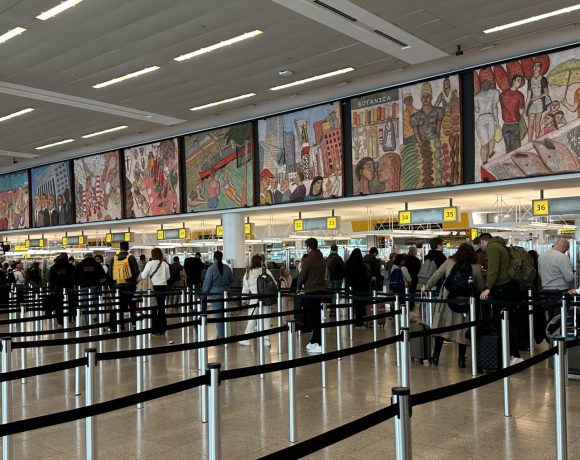Cyfirma equips Middle East businesses with cutting-edge solutions to combat cyber-threats
Cyfirma, the global threat discovery and cyber-intelligence platform company, has embarked on an ambitious foray into the Middle East region spearheaded by two proprietary tools designed to protect businesses from multi-dimensional existing and emerging cybersecurity threats, especially as key countries in the hydrocarbon-rich region face unprecedented cyber-attacks spanning various industries, including critical utilities.
Headquartered in Singapore, and with offices located in the United States, Japan, and India, Cyfirma has entered into a strategic collaboration with Tech First Gulf, the Dubai-headquartered Value-Added Distributor (VAD), specialising in Gartner leading solutions/technologies encompassing unified communications, unified collaboration, audio-visual, infrastructure, and cybersecurity solutions.
As part of the new partnership with Tech First Gulf, Cyfirma has launched two advanced threat monitoring and analytics solutions for regional enterprises – DeCYFIR and DeTCT – respectively.
Cyfirma’s flagship product, DeCYFIR, is the world’s first external threat visibility management platform that combines cyber-intelligence with attack surface discovery, vulnerability intelligence, brand intelligence, situational awareness, and protection against digital risk.
In particular, DeCYFIR automatically correlates and attributes threat actor to motive, campaign and method, and helps organisations gain a comprehensive view of their threat landscape.
Designed to provide 360-degree visibility and protection from digital risk exposure originating from dark web, surface web, and social media channels, DeTCT allows security defenders to identify and monitor for vulnerabilities and potential attack vectors, identify data leaks and identity theft, detect copyright infringement, and also risks posed by third parties.
In an exclusive interview with MENews247 in Dubai, Kumar Ritesh, Founder and CEO of Cyfirma, said: “We [Cyfirma] are super-excited to be entering the Middle East market at this point in time through our new partnership with Tech First Gulf.

Kumar Ritesh, Founder and CEO of Cyfirma, anticipates 10% revenue generation from the Middle East in 2022
“The coming together of Cyfirma and Tech First Gulf symbolises the perfect marriage; and is one that will deliver a much-needed external threat landscape management platform to organisations in the Middle East,” Ritesh added.
Highlighting the need for organisations in the region to harness the bespoke capabilities of the DeCYFIR and DeTCT solutions, Ritesh noted: “The Middle East threat landscape has evolved a lot since 2020, especially in terms of cybercrime. It is thus high time for organsations in the region to step up their defence capabilities, beginning with their internal security controls.”
As per Cyfirma’s ‘Cybersecurity Predictions 2022’ report, in 2022, ‘cybercriminals will continue to evolve their modus operandi – attaining greater sophistication and modifying their tactics, techniques, and procedures to outsmart cyber defenders.’
The report further warned: ‘With the development and wider adoption of radical new technologies like 5G, cryptocurrencies, industrial robotics, etc., attackers will find renewed motivation to diversify, with attacks that are not easy to foresee and difficult to mitigate. In simple terms, cyber defenders will quickly realise the inevitable fact: No surface is out of cybercriminals’ reach and influence.’
With more than 20 years’ global cybersecurity leadership experience under his belt, in addition to being the co-inventor of two patented technologies for phishing fraud detection and protocol-aware PCB architectures, Ritesh is of the opinion that organsations in the Middle East, to date, have primarily concentrated their cyber defence protocols on blocking cyber-attacks only after they have been targeted in the first place, instead of anticipating and preempting the cyber-attacks in the first place.

Cyfirma’s ‘Cybersecurity Predictions 2022’ report warns ‘cybercriminals will continue to evolve their modus operandi’
Evident from the company’s tagline ‘Decoding Threats’, Cyfirma is always a step ahead of cybercriminals’ activity, said Ritesh, adding: “Organisations [Middle East] need to understand the strengths and the weaknesses of their cybersecurity adversaries, and the organisations themselves need to utilise that intelligence as part of their overall cyber-threat response.
“Having access to Cyfirma’s DeCYFIR and DeTCT platforms will be a game-changer for businesses in the region, because clearly, businesses do not have ready access to visibility of their external threats and risk right now,” said Ritesh.
According to a ‘PwC 2022 Global Digital Trust Insights’ survey of 3,602 business and IT executives polled, including respondents from across the Middle East, investments are continuing to pour into cybersecurity, with 58% of Middle East organisations saying they will increase their cybersecurity spending in 2022, compared to 43% in 2021.
Against this backdrop and with Tech First Gulf as its key regional VAD, Cyfirma anticipates earning “up to 10% of its global revenue from the Middle East in 2022,” said Ritesh, adding: “This could potentially grow to 15% in 2023, especially as we have the potential to grow at a phenomenal rate in the region, thanks to the cross-pollination of industries in this part of the world.”
With the global and regional cyber-threat landscape constantly evolving, including substantially stepped up distributed denial-of-service (DDoS) attacks; Ritesh predicted that deepfake technology will be increasingly used by individual cybercriminals and cybercriminal organsations to target Middle East governments and businesses, adding to the region’s ransomware and phishing attacks landscape.
As the world’s first platform to deliver predictive cyber-intelligence and trusted by Fortune 500 companies, Cyfirma is at the forefront of tracking global cybercriminal operations, said Ritesh, noting: “Today, by deploying our expertise in AI, cyber-intelligence and offensive security, we continuously monitor more than 860 cybercriminal groups and more than 2,000 cyber hacking campaigns that cybercriminals are busy working on.
“In this respect, we view organisations’ critical data assets, including behavioural data, and infrastructure in the same manner as cybercriminals do, and based on our cutting-edge assessment of the threats we are able to advise organisations of where exactly they can expect a cyber-attack and how they can thwart the attacks as part of their cyber defence strategy,” said Ritesh, who has led the cyber intelligence and counterterrorism unit of a national intelligence agency prior to founding Cyfirma.
Ritesh revealed that the current Middle East cyber-threat landscape is composed of rapidly digitising initiatives by governments, businesses and end-consumers; the 2022 FIFA World Cup in Qatar; and the Ukraine-Russia geopolitical scenario – all of which cybercriminals are bent on exploiting, for financial or political gain, or for other malafide intentions.

Fortune 500 companies rely on Cyfirma to keep them cybersafe
Middle East businesses have realised they can no longer depend on conventional cybersecurity measures to counter cyber-threats, said Ritesh, but the organisations can mitigate and arrest the risks while enabling business growth by deploying Cyfirma’s newly introduced external threat landscape management platforms in the region.
Last Updated on 1 year by Arnold Pinto














